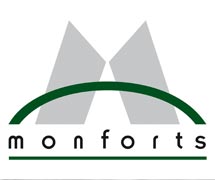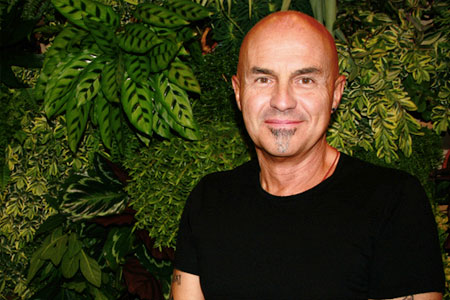Patagonia – perhaps the most well-known outdoor clothing brand in terms of its pioneering approach to sustainability – is happy to be supplied with all of its denim by Monforts customer Arvind.
“Patagonia knows our denim is completely traceable, which is not always the case with other mills,” says the company’s Creative Director, Stefano Aldighieri. “The great thing about Arvind, is that from its foundation, the owners understood that if you want to have a successful business you have to be aware of your impact – and that includes responsibility to people too. In India, Arvind already has one business already entirely run by women at every level, which is pretty progressive for the country.”
As far as manufacturing is concerned, Arvind’s current annual denim capacity is now 110 million metres and some key initiatives have been specifically aimed at reducing the use of energy, water and chemicals.
The manufacturing process of a single pair of denim jeans usually creates between 6-9kg of industrial greenhouse gas emissions and Arvind is now able to supply carbon neutral products by supporting UN-certified climate mitigation to off-set its carbon emissions. It is also working to further reduce emissions by moving to solar energy, using biomass fuels and investing in energy saving projects.
Eco Line
Arvind has also recently installed India’s first Monforts Eco Line denim finishing machine for faster production, greater savings in energy, and better flexibility in design and innovation.
The Eco Line, which can handle fabric widths of 1.8 metres and operate at high speeds of up to 80 m/min, is operating alongside four Montex foam finishing stenters, which are also able to handle this same width of material.
The Eco Line system reduces energy losses and energy use, increases thermal transfer and keeps the drying energy on the textile material longer, so that it can be used very efficiently. As a result, energy savings of up to 50% can be achieved. Exhaust air energy can also be reduced to a minimum, which has a positive effect on the emission load into the atmosphere.
“We are also introducing new ways of doing new things with indigo dyes – such as our Naruril Indigo denims using multi-dip rope dyeing process using pure vegetable indigo, which is the oldest dye known to mankind,” says Stefano. “We have a growing garment business in which we are investing in new technology and techniques, because having got the finishing of fabric right through technologies such as the Monforts line, there’s a lot you can do at the garment manufacturing laundering stage.
“Our plant in Bangalore, for example, has now become the first in India to eliminate the use of pumice stones in laundering, and this is a big issue in terms of getting rid of the sludge created. There are also a lot of positive things happening in respect of laser garment finishing and other techniques, but perhaps Arvind is in the position to make such investments while other companies are not. Sustainable production always pays off, but the problem is it requires upfront investment and not all companies are in a position to do this.”
Waste
Recycling, he adds, will become increasingly important.
“It’s not even funny anymore, the amount of waste we are generating with used clothing – it’s absurd,” he says. “We have been working towards 100% recycled PET, for example, but so much of the waste material available for recycling is in blends, which makes things difficult. We are also looking at other natural fibres as an alternative to cotton – linen, hemp, bamboo and lastly, wool – which to me is the most eco-friendly fibre. Tencel is also a great fibre with which superb fabric features can be achieved.”
When it comes to trends, he believes a return to more classic products and looks is now taking place.
“I hope this is a reaction to fast fashion in a positive way, because there are design and aesthetic elements that are always relevant in denim and have been for fifty years – it’s a question of reinforcing them. Generally, we stay away from short-term trends and concentrate on the macro trends that will be around long term.”
The crossover between casual wear and sportswear is certainly here for the longer term, he believes. Arvind’s Bi-stretch ranges, for example, are characterised by high dimensional stability with stretch in any direction, retaining shape over time and also providing ideal comfort during day-to-day activities. Hybrids of denims and chinos, constructed with high warp cover, are also now available in saturated shade and with a very soft hand feel due to the use of two-ply yarns.
Across all of its ranges, however, the emphasis is now on optimising the utilisation of resources to bring out the best in innovation and design.
“Sustainability is now taking hold in the denim industry,” Stefano concludes. “After many years of dilly-dallying, people are starting to realise it’s time to act. We have to be pragmatic in our decisions and make every choice in a responsible way, and that includes not trying to increase capacity all the time The more we make, the more we are competing against each other. The cost of a pair of jeans is now less than it was twenty years ago. Try buying a house or car for the same price as back then. But we take this for granted.”

